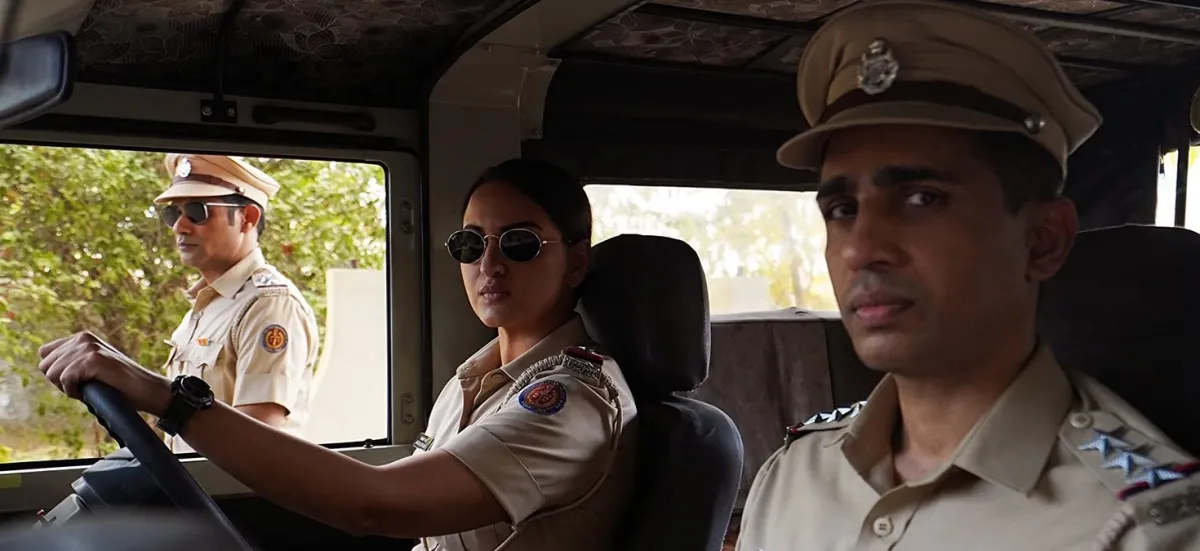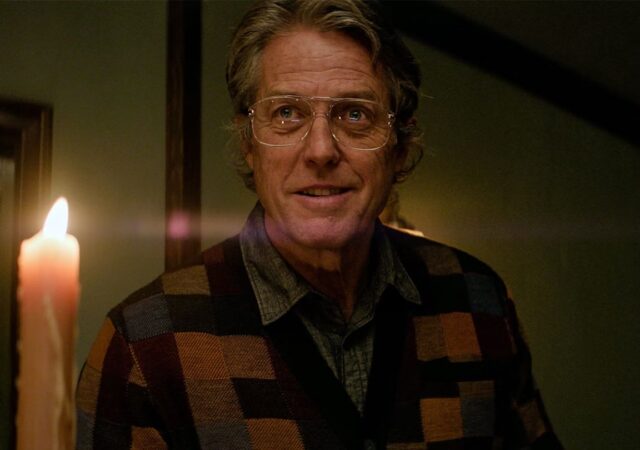Some stories beg for a longer runtime, and Dahaad is one of them. This eight-episode series, now streaming on Prime Video, could have thrived as a full-length feature. It heralds Sonakshi Sinha’s debut in the streaming realm.
In the remote corners of Rajasthan, an enigmatic serial killer prowls freely, sending shockwaves throughout the town. The diligent cops embark on a quest to unveil his identity and capture him red-handed. As their pursuit unfolds, it becomes clear that his victims are scattered far and wide. Dahaad delves into how this elusive killer is finally apprehended and unravels the motives behind his actions.
Enter the fascinating minds of writer-director duo Zoya Akhtar and Reema Kagti, masters of cinema’s hidden layers and metaphors. Their collaborations, including the exploration of Bombay’s rap culture in “Gully Boy,” have consistently left audiences spellbound. In Dahaad, while the murder mystery is at its core, the focus extends beyond the perpetrator’s deeds. It invites us to delve into the darkness that molded him into a monster.

To fully appreciate and dissect Dahaad, one must fully immerse themselves in its eight-hour narrative.
Sonakshi’s character Anjali, born into a lower-caste family, defies societal norms by joining the police force, emerging as a resilient woman unafraid to claim her space. A moment of epiphany occurs when she confronts caste discrimination- “Agar insaaf ki jaati puchlo na to woh bhi uschi jaati ka hi milega (If you ask the caste of justice, it too will belong to the same caste)” – summing up the essence of the show.
The show paints a vivid backdrop of a world steeped in complexities. Abandoned daughters are considered saved(?) from dowry payments, Thakurs cling to an outdated notion of purity, and the women folk remain stagnant due to limited resources. Dahaad dissects the politics of hate, casteism, the class divide, and the manipulation of religion for political gain. Its layers are so intricate that multitasking while watching is a disservice. Either surrender to Dahaad’s grip or turn away, for it demands undivided attention, rewarding with a slow-burning narrative.
The casting of Dahaad is bold and audacious. Sonakshi Sinha, who has been away from such nuanced roles, returns as an ‘actor,’ seamlessly adapting to her character’s shoes. The performance of Sinha, who has previously impressed audiences with her performances in “Akira” and “Ittefaq”, reflects the depth and versatility of an accomplished actor. Vijay Varma, a magician in his own right, embodies a serial killer with a parallel existence. His portrayal is so compelling that fear lingers even when he’s not committing any crimes; it’s the idea that he uses his intellect as a weapon that sends chills.

Yet, Dahaad leaves some narrative threads dangling, like Sonakshi’s resistance to love, her relationship with her father, and the systemic harassment she endures despite her role as a law-enforcer. Similarly, the challenges faced by a man in bringing life into this world remain underexplored. These aspects, while teased, feel like missed opportunities in the bigger picture. Similarly, the climax of the series comes off as abrupt and underwhelming after investing nearly eight hours in the story. While the emphasis was on the journey rather than the outcome, the conclusion could have still been more satisfying. It is a Zoya Akhtar and Reema Kagti brainchild afterall!
Dahaad may not be for everyone, but it deserves a chance, even if it doesn’t immediately captivate. Its cinematic storytelling akin to reading a book, is an experiment worth investing 8 hours in. Dive into this captivating world and let its layers unfold before you.






















